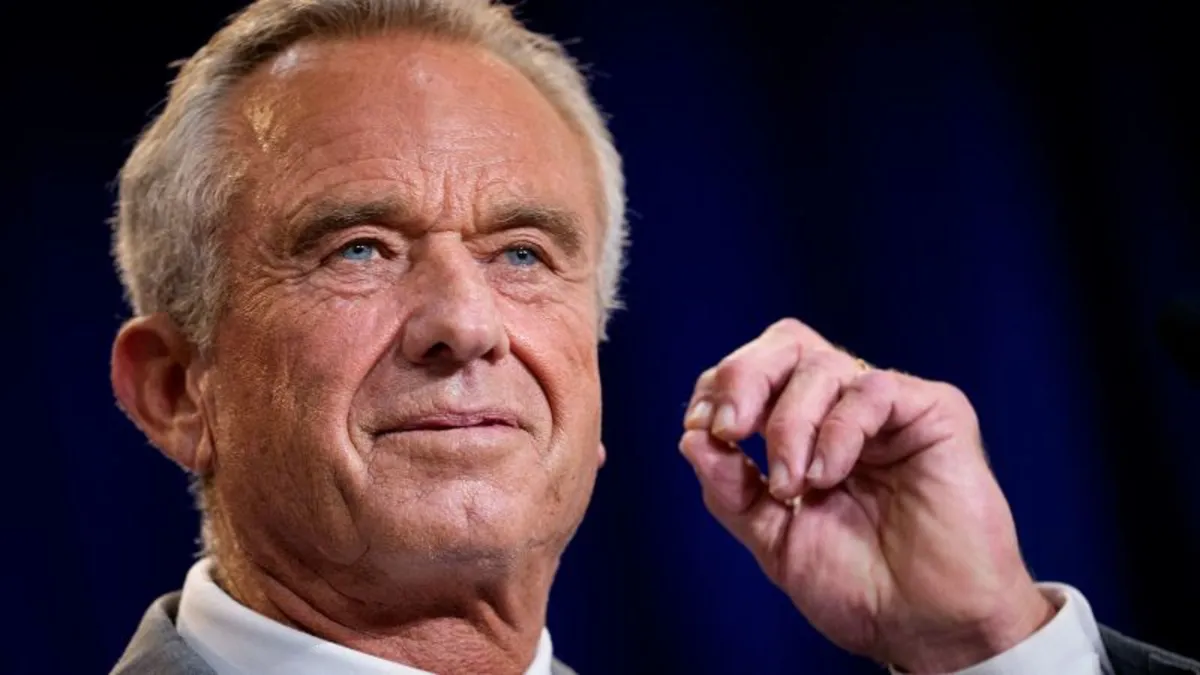
A recent document released by the Department of Health and Human Services (HHS) aimed at supporting Secretary Robert F. Kennedy Jr.’s controversial decision to alter U.S. policy regarding COVID-19 vaccines has come under intense scrutiny. The document cites scientific studies that are either unpublished or disputed, leading health experts to label it as “willful medical disinformation” regarding the safety of COVID-19 vaccines for children and pregnant women.
Mark Turrentine, a professor of obstetrics and gynecology at Baylor College of Medicine, expressed his disbelief at the document's contents. “It is so far out of left field that I find it insulting to our members of Congress that they would actually give them something like this,” he stated. Turrentine emphasized that Congress members rely on agencies like HHS for accurate information, which he believes the document fails to provide.
Kennedy, formerly known for his anti-vaccine activism, announced on May 27 that the Centers for Disease Control and Prevention (CDC) would no longer advocate for COVID-19 vaccines for pregnant women or healthy children. This decision bypassed the formal processes typically used to adjust vaccine schedules, sparking outrage among pediatricians and scientists alike.
The HHS document, titled “COVID Recommendation FAQ,” was sent to Congress members questioning the scientific basis for Kennedy’s abrupt policy change. While not publicly available on the HHS website, it is the first detailed explanation provided by the agency regarding Kennedy’s announcement. Medical experts have pointed out that the document distorts legitimate studies and references others that are under dispute or unpublished.
Andrew Nixon, HHS director of communications, defended the document, claiming, “There is no distortion of the studies in this document. The underlying data speaks for itself, and it raises legitimate safety concerns.” However, he did not disclose who authored the document.
One of the studies cited in the HHS document is currently under investigation for “potential issues with the research methodology and conclusions and author conflicts of interest.” Sean O’Leary, chair of the Committee on Infectious Diseases for the American Academy of Pediatrics, criticized Kennedy's approach, stating, “Either cherry-pick from good science or take junk science to support his premise — this has been his playbook for 20 years.”
Additionally, the document refers to a preprint study that has yet to undergo peer review, warning readers that it “should not be used to guide clinical practice.” The study has been available for a year without being published in a peer-reviewed journal, raising further concerns about its credibility.
In a controversial claim, the FAQ asserts that “post-marketing studies” have identified “serious adverse effects” from COVID-19 vaccines, such as myocarditis and pericarditis. However, false claims circulated on social media suggested that these conditions appeared only in vaccinated individuals, ignoring the fact that the study did not compare vaccinated individuals to those infected with the virus.
Experts have noted that the HHS document omits peer-reviewed studies indicating that the risk of myocarditis and pericarditis is higher after contracting COVID-19 than after vaccination. Turrentine remarked, “If I were grading the HHS document, I would give this an ‘F.’ This is not supported by anything and it’s not using medical evidence.”
Neil Silverman, a professor at the David Geffen School of Medicine, expressed concern that many legislators may lack the expertise to dissect the references in the paper. He mentioned that the misleading information could easily mislead lawmakers who trust the credibility of HHS.
The offices of several Republican members of Congress with medical backgrounds did not respond to inquiries about receiving the memo. However, Rep. Kim Schrier (D-Wash.), a physician, confirmed that her office received the document. In response to Kennedy’s unilateral changes to the vaccine schedule, Schrier and Rep. Frank Pallone (D-N.J.) introduced legislation requiring that vaccine decisions be made with input from the Advisory Committee on Immunization Practices (ACIP).
On June 9, Kennedy announced plans to remove all members of ACIP, citing unspecified conflicts of interest, and has since appointed replacements who have previously criticized vaccine mandates. This decision further fuels the ongoing debate surrounding the safety and efficacy of COVID-19 vaccines.
The controversy surrounding the HHS document and Kennedy’s decisions highlights a critical divide in public health discourse regarding COVID-19 vaccines. As discussions continue, the importance of relying on credible, peer-reviewed scientific research remains paramount in shaping health policy and ensuring public safety.